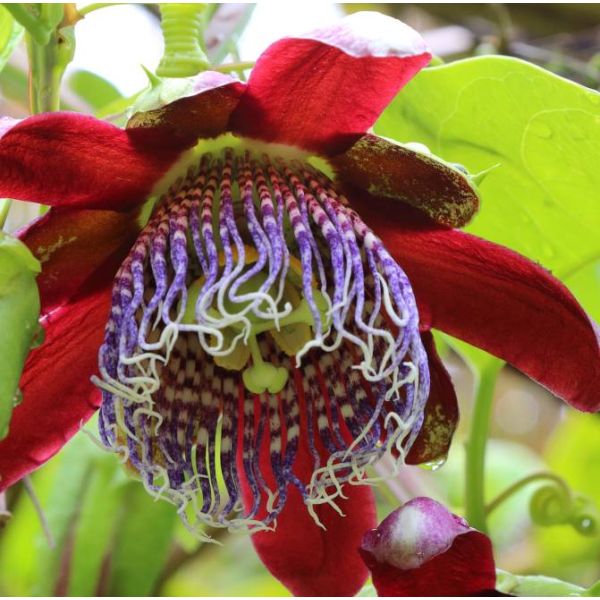Passiflora Alata Seeds (Fragrant Granadilla Seeds)
Passiflora Alata Seeds (Fragrant Granadilla Seeds)
Captivates with fragrant red blooms and sweet fruit, perfect for adding exotic charm to sunny gardens.

Delivery
All orders shipped with UPS Express.
Always free shipping for orders over US $250.
All orders are shipped with a UPS tracking number.
Returns
Items returned within 14 days of their original shipment date in same as new condition will be eligible for a full refund or store credit.
Refunds will be charged back to the original form of payment used for purchase.
Customer is responsible for shipping charges when making returns and shipping/handling fees of original purchase is non-refundable.
All sale items are final purchases.
Help
Give us a shout if you have any other questions and/or concerns.
Email: contact@domain.com
Phone: +1 (23) 456 789
Availability: In stock
SKU
Passiflora Alata
Passiflora alata, commonly known as the Winged Passionflower, is a striking, fast-growing climbing vine native to South America. This species is admired for its vibrant, intricate flowers and its ability to quickly cover trellises, fences, and arbors. It is a popular choice for ornamental gardens and attracts pollinators like bees and butterflies.
This vine features large, oval leaves with a characteristic winged appearance on the petioles, which gives the plant its name. The flowers are one of the most attractive features of Passiflora alata, typically consisting of white petals with purple, blue, and pink accents, surrounding a central structure of long, delicate filaments. These flowers bloom in abundance from spring through summer, creating a stunning visual display.
The plant produces edible fruit, which resembles an oval-shaped, yellow or orange berry. The fruit has a sweet and tangy flavor and is enjoyed in tropical regions for making juices and desserts. The fruiting period occurs in late summer to fall, adding another element of interest to the plant.
Passiflora alata thrives in well-draining, slightly acidic soil and prefers full sun to partial shade. It is well-suited for warm, tropical, or subtropical climates and is hardy in USDA zones 9-11. This vine is tolerant of drought conditions once established, but regular watering is necessary during prolonged dry periods to support healthy growth and fruit production.
Ideal for garden trellises, pergolas, or as a fast-growing ground cover, Passiflora alata offers both aesthetic and practical benefits. With its stunning flowers, edible fruit, and fast growth, it is a wonderful addition to any garden seeking a touch of the exotic.
| Common name | Fragrant Granadilla |
|---|---|
| Species | Passiflora alata |
| Germination | Soak seed in warm water for 24 hours before sowing, in a good seed compost at 1/4" deep. For Passiflora seeds, instead of using water you can use a high pulp fruit juice such as passion fruit juice or orange juice. The acid in these juices will soften the shell and speed up germination. Keep damp soil, not soaking wet. Keep pot in warm situation 20øC/68øF, 24øC/75øF. Cover the top of the pot with clear plastic so the humidity will remain high. When you see some tiny plants starting to sprout, slowly open the top of the pot, a little each day, so that the new seedlings don't go into shock from the humidity being lowered too quickly. Germination of Passiflora can occur in weeks or take several months. If you want to speed up germination, you can use the bottom heat technique, but it isn't a must. |
| Scarification / Stratification | If your home is on the low side of 70§F, your seeds will benefit from bottom heat. Give warmth from underneath to stimulate early growth, and to help seeds to germinate. The ideal situation is to maintain the soil temperature at 70§F. For this, you use an electric soil warming cable kit, or a heating mat that goes under your flats; or any other source of heat. With the proper temperature, you will cut by 2 or 3 the germination time. |
| Price View | Price Range |

